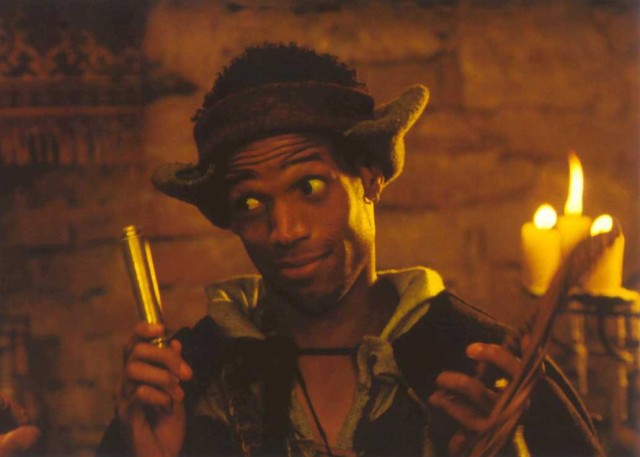OR: How I Learned To Stop Leaning On Pop Culture Cliches And Develop A Unique Fucking Perspective
We’re playing D&D tomorrow.
Tabletop role-playing games got a bum rap in the 20th century for corrupting the youth, like fantastic satanic fluoride in the proverbial water supply of good ol’ God-fearing America. It’s a crock of shit with a few chunky nuggets of truth, chief among them being that gamers are fucking weird. You may think of yourself as a gamer, but you’re not. Not really.
No, tabletop wargames were popular decades before you and I were fumbling through our first match of Warcraft; armchair generals and gaming grognards were arguing the finer points of pike deployment while we were still in Pampers. The humble house of video game design was built entirely atop the dull, leaden blocks of stats that fill the average Warhammer splatbook. If you’ve ever played a game with sweet loot, level systems or critical hits, you owe Gary Gygax and Dave Arneson a pair of the nerdiest and most awkward high-fives possible. Without D&D, video games as we know them would not exist.
Of course if you were some sort of evil self-loathing supernerd, traveling back in time and assassinating Gygax or Arneson in the street would be a sure-fire way to ensure great games like Diablo, Deus Ex and Earthbound never existed. You monster, you.
But you don’t need to hear about all the curious ways that D&D and contemporary video games intertwine; that story has been written. You need to know about the time I made a grown man cry with one roll of the dice.
I’ve woken in strange places, sometimes alone, with nothing but bills crumpled in the pockets of yesterday’s clothes. I’ve carried corpses. I’ve been stabbed, tattooed and tased. It’s a melodramatic way to say I’ve taken part in some painful, stupid shit, but one of the most painful things I’ve ever done was deny a good friend his shot at divine redemption. Seriously.
We were playing a game called Vampire: The Masquerade, a melodramatic parlor game made famous for becoming a tool whereby unscrupulous Midwestern youths lured unsuspecting men/women into subterranean steam tunnels and weird sexual encounters. Whether or not any of those stories were actually true is irrelevant; they imbued the game with a beautiful dark twisted mystique that sucked young outcasts in like goths to the flame. It worked. We were hooked.
I was the Storyteller. My friends were Players. We were 15, and together we wove a story of peasants swept up in a Dark Ages power struggle, of ignorant men and women transformed into immortal parasites and how they dealt with the degradation of their humanity. We also rolled a ton of dice, killed a bunch of shit and took everything that wasn’t nailed down.
We had a blast, and after a few years my best friend built a character dedicated to pursuing peace, perfection and platitudes. He was a Toreador who wanted out, and in Vampire there are only two ways out the game: death or divine intervention. He chose the second door, begging me to redeem his imaginary indigent impresario with the Hand of God. It was a simple request, easy to honor. I refused.
He was furious. Voices were raised, tables were turned, a single tear was spotted. I was fifteen, he was wading through a rough patch in his home life, and we had a falling out. I made my best friend furious over a tarted-up game of Let’s Pretend, and even after years of jokes I can’t help feeling a little bad about it.
Tabletop role-playing games are ridiculous, but they also demand a kind of implicit trust that few forms of entertainment can match. The best games become a strange mix of improv theater and ghost stories whispered around the campfire after dark. Look past the crutches of cardboard figures and polyhedral dice; see that when you’re seated around a table telling stories with friends, you’re welcoming each other into parts of your personality kept private from the world at large. It’s a game of imagination, and if you’re curious enough to push past that ridiculous premise and actually play you’ll find a unique entertainment experience unmatched in contemporary culture.
Imagine playing a game that you helped create, facing challenges and twists custom-tailored to your interests by a few of your closest friends. Imagine playing a game that satisfies your need to create, explore and conquer in one fell swoop. Imagine sitting around a basement table with four of your friends for a few hours every weekend, drinking beer and rolling dice. That’s D&D. Unless you’ve got a craps grid spraypainted on your table, then that’s just ballin’.

